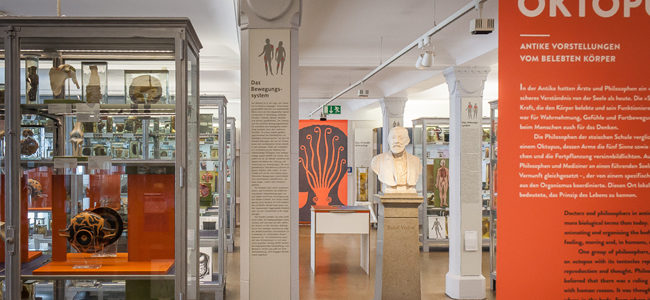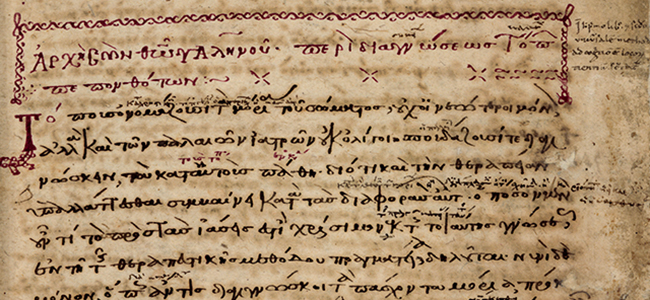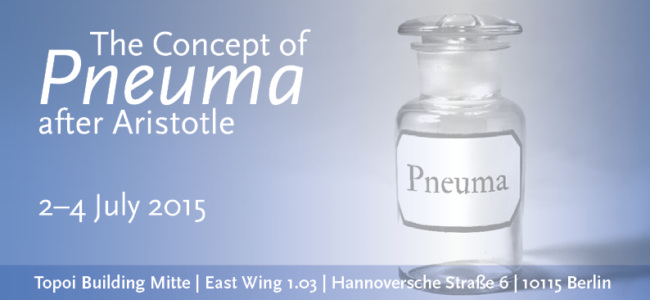The research group worked at the interface between the history of medicine and philosophy. The group examined how the faculties of the soul and the diseases of mind were localized in ancient times and how these ancient theories have contributed to the concepts of modern times.
| 18 | Researchers |
| 5 | Research Projects |
| 4 | Dissertation Projects |
| 70 | Publications |
| 27 | Events |
| 27 | Cooperating partners |
The spatial mapping of the body and the soul and their respective faculties can be seen as a part of the philosophical and medical exploration of intra-corporeal spaces. Galen’s theory of the “places of diseases” rests on methods for inferring from diagnostic tests to the location of a “diseased place”. The group reconstructed the theoretical foundations of this method. From a metaphysical point of view, the influential Aristotelian theory of the soul confronted rival theories based on materialist metaphysics. Epicureans, Stoics, and pneuma-theorists concentrate on the nexus between spiritual and corporeal realm. The group worked on editions of the principal source texts, analyze the conceptual framework contained and track its transformations from antiquity through the medieval reception with a focus on the Arabic transmission.
Research Projects
- (D-2-1) Diagnostics and semiotics. Medical methods for exploring interior bodily space and the theoretical assumptions underlying those methods
- (D-2-2) Localization of intellectual faculties within the body in materialistic theories of soul-body relation (Archigenes und Poseidonios)
- (D-2-3) Localization of intellectual faculties within the body in materialistic theories of soul-body relation (Stoa/Pneumatismus)
- (D-2-4) Reception and critique of materialist body-soul theories in the Middle Ages and the Early Modern Period
- (D-2-5) Exhibition
Dissertations
- (D-2-1-1) The antinoopolis medical papyri: A case study in late antique medicinence of Greek Papyri
- (D-2-1-6) Galen, De locis affectis I-II: Critical Edition with Translation and Comments
- (D-2-2-1) Mapping the role of Memory in Galen's oeuvre
- (D-2-4-1) Immaterialität, Materialität, Intentionalität. Johannes Buridans Philosophie des Geistes



